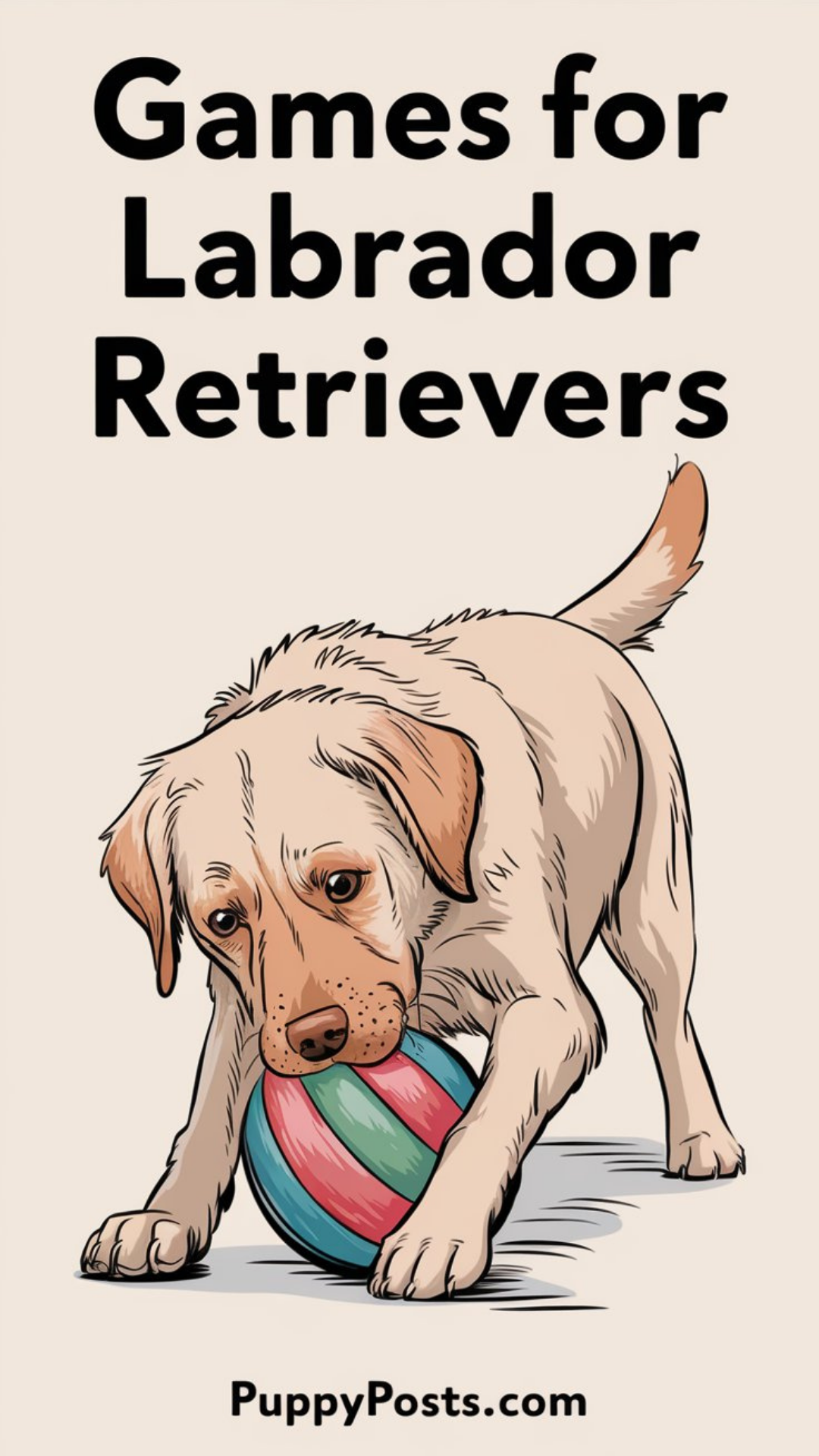Games for Labrador Retrievers
Alright, let’s talk about Labrador Retrievers. Everyone knows ’em – friendly, goofy, got a tail that wags harder than a broken windshield wiper. But what a lot of people miss, stuck on that lovable personality, is that these dogs are smart. Seriously, they’re not just big, lovable lugheads; they’re working dogs, built to think, to retrieve, and to solve problems. And believe me, if you don’t give that Lab brain a job, it’s gonna find its own work, and that usually means chewing your couch, digging craters in your yard, or developing some neurotic habit. I’ve been a vet for ten years, running my sanctuary here in Jersey, and I’ve seen enough bored Labs to know the drill. So, let’s cut the fluff and get into some serious fun that’ll keep your Labrador’s mind and body engaged.

The Nose Knows: Unleash Their Inner Tracker
Labs are famous for their incredible sense of smell. Ignoring that powerful nose is a crime. Get ’em sniffing, and you’ll tire them out more than a mile run.
- Advanced “Find It!”: Don’t just toss a treat. Make them hunt for it. Start by having your Lab “stay” in another room. Hide high-value treats or their favorite durable toy in increasingly difficult spots around the house or yard. Under a rug, behind a curtain, tucked into a box, buried slightly in the grass. Give them the “Find it!” command and let that nose go to town. This isn’t just a game; it builds focus, independence, and uses up serious mental energy.
- Scent Discrimination: Take it up a notch. Get a few identical, non-toxic containers (like small plastic bowls). Place a unique, dog-safe scent in one (e.g., a cotton swab rubbed with a drop of diluted, safe essential oil like vanilla, always research safety first!). Place an identical, unscented swab in the others. Teach your Lab to identify and indicate the specific scent. This builds intense focus and analytical skills.
- “Go Get the Keys!”: This is impressive and practical. Teach your Lab to retrieve specific items by name. Start with just a couple of distinct objects they love (e.g., “Ball,” “Leash,” “Keys”). Practice until they can reliably bring the correct item when asked, even if it’s mixed with other objects. This combines scent, memory, and obedience.
Brain Busters: Cognitive Challenges for the Thinking Dog
Labs aren’t just about physical tasks; they need to use their noggin to figure things out. If they’re not mentally stimulated, they’ll invent their own “puzzles,” usually at your expense.
- Complex Puzzle Feeders: Ditch the simple kibble bowl for good. Invest in durable, multi-step puzzle feeders that require your Lab to manipulate levers, slide panels, or lift pieces to get their food. Freeze a Kong or a similar toy stuffed with a mix of kibble, low-sodium broth, and dog-safe veggies. This turns mealtime into a serious mental workout, slowing them down and engaging their minds.
- DIY Obstacle Course/Problem Solving: Use household items to create a challenging path. Have them weave through chair legs, jump over a low broomstick, crawl under a blanket draped over two chairs. You can even put a treat inside a sturdy cardboard box that they have to figure out how to open. It makes them think about their body, space, and how to get to a reward.
- “Which One Is Different?”: Line up a few identical objects (e.g., three empty plastic cups). Place one different object (e.g., a small rubber toy) among them. Teach your Lab to identify and touch/bring the “different” one. This exercises their observation and analytical skills and requires sustained attention.
Active Minds, Active Bodies: Combining Both
Labs are athletes; they need to move. But combining physical activity with mental tasks is the ultimate challenge for them, satisfying both their drive to work and their love of play.
- Directed Retrieve & “Go Back”: Don’t just throw a ball aimlessly. Teach your Lab to retrieve from specific locations or return to a “place” (like their bed or a designated mat) before you throw it again. You can also throw multiple toys and have them retrieve specific ones by name, or even send them “back” to pick up a toy they missed. This adds layers of obedience and strategy to fetch.
- “Hide and Seek” (Advanced): This is a classic, but you can make it challenging. Have your Lab “stay” in one room while you hide somewhere unexpected in the house or yard. Call their name and give the “Find me!” command. Reward them excitedly when they locate you. This reinforces their recall and uses their tracking skills in a fun, engaging way.
- Water Retrieve (If Available & Safe): If you have access to a safe body of water (check for currents, hazards, water quality), this is a Lab’s absolute favorite. Throw floating retrieve toys and let them swim and fetch. The physical exertion combined with the mental focus of finding the toy in the water is incredibly stimulating.
My Jersey Wisdom: The Bottom Line
Look, a Labrador that’s bored is a Labrador that’s gonna cause trouble. They need purpose, they need a job, and they need to think. These games aren’t just for kicks; they’re essential for keeping that intelligent, energetic dog mentally stimulated and well-adjusted. Be consistent, use positive reinforcement – lots of praise, good treats, and enthusiastic play. Never get frustrated; they’re trying their best, and Labs are sensitive.
You put the effort into challenging that Labrador’s mind and body, and you’ll have a calm, happy, and truly impressive companion. An under-stimulated Lab? That’s a headache waiting to happen. Do right by your dog. Trust me on this one.







